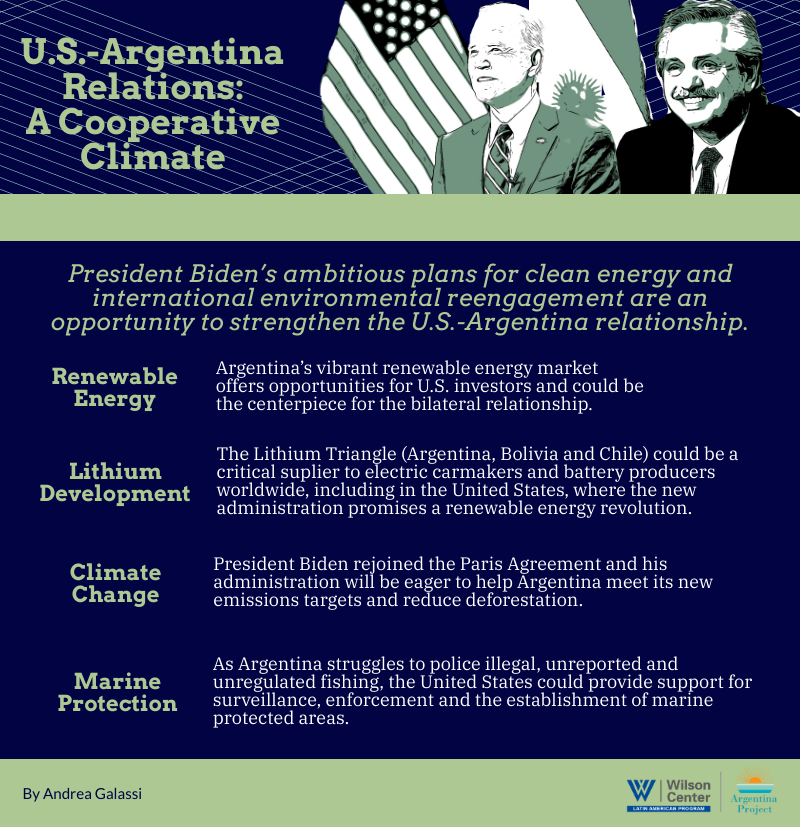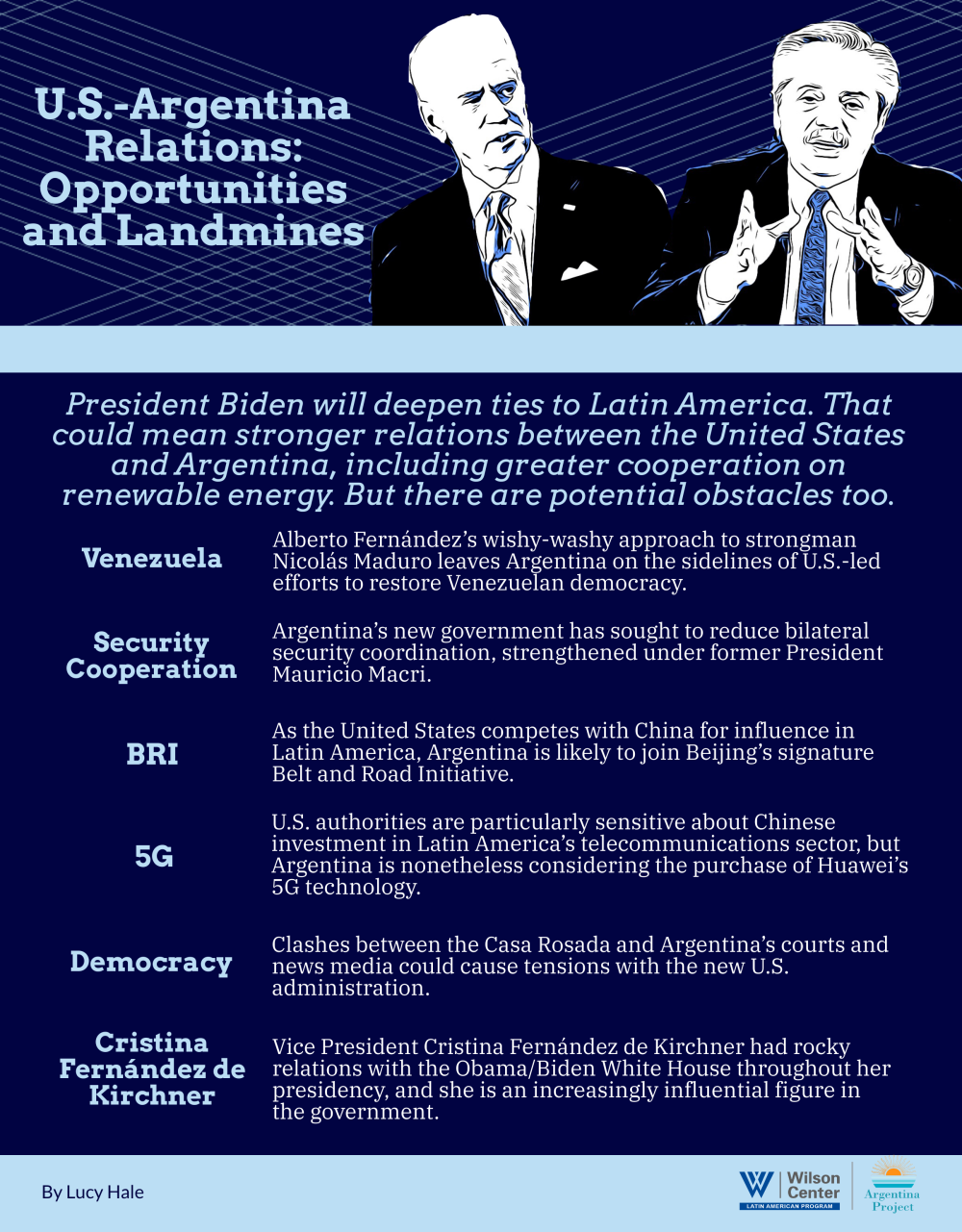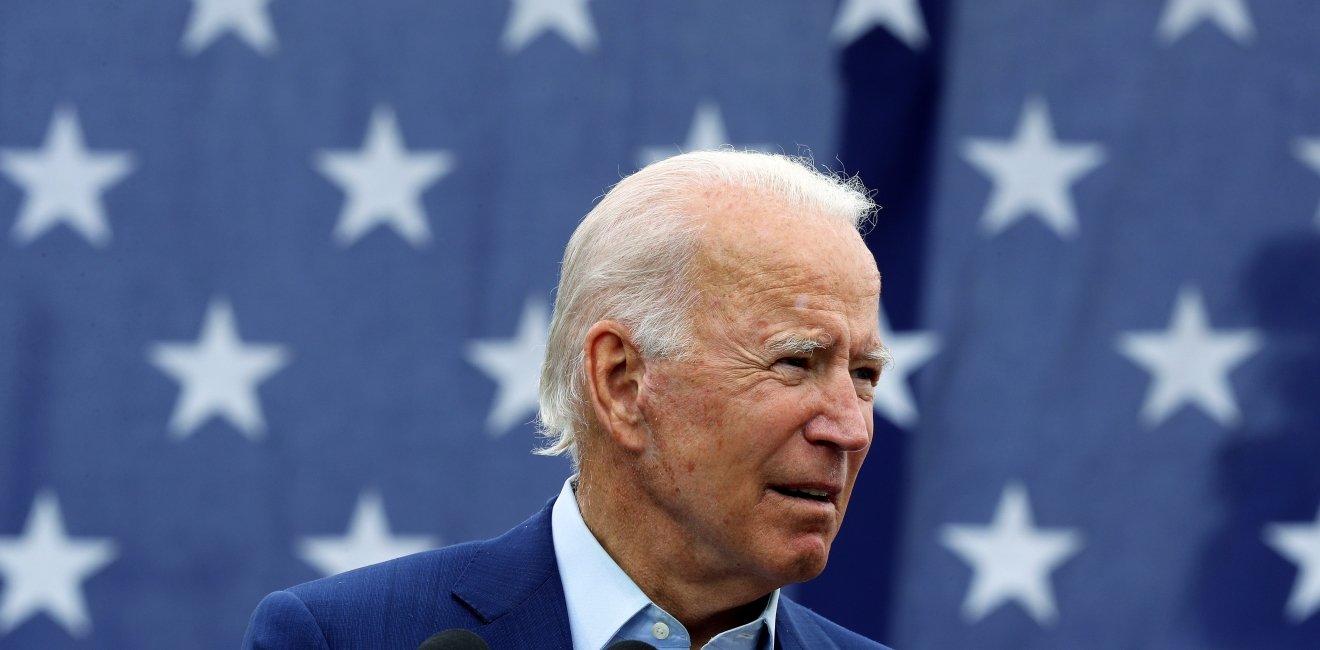
A blog of the Latin America Program

By Lucy Hale and Andrea Galassi
President Biden has extensive experience in Latin America and intends to rebuild the U.S. image in a region that soured on the United States over the past four years. His distaste for dictatorship, corruption and environmental destruction has discomfited some Latin American leaders, but his administration is widely expected to strengthen ties with traditional U.S. partners throughout the region.
Argentina has high hopes for the new administration, whose support it will depend upon to renegotiate its $44 billion debt to the International Monetary Fund. Its reserves are depleted, and it owes the Fund $3.65 billion this year. That said, a meeting of the minds is not guaranteed. As Mariano Caucino wrote in Infobae, President Alberto Fernández’s new administration inherited old baggage from the last Peronist government: “Es altamente probable que si Biden guarda alguna memoria sobre su gobierno, éste sea una muy mala.” Mr. Fernández himself is not a natural partner for the United States. His excitement toward Evo Morales, tolerance of Nicolás Maduro, enthusiasm for the Grupo de Puebla and fondness for Beijing could distance Buenos Aires from Washington. Indeed, the relationship between the Casa Rosada and White House got off to a rocky start after the Argentine Foreign Ministry released an unusually combative congratulatory note to Mr. Biden that demanded respect for multilateral institutions and warned against turning Latin American governments against one another.
That said, there are countless areas for potential collaboration, as Mr. Fernández emphasized in a friendlier congratulatory letter to Mr. Biden. These include climate change, a foreign policy priority for the Biden administration that offers opportunities for collaborations on a range of environmental initiatives, from renewable energy production to forest conservation and marine protection.

Authors



Latin America Program
The Wilson Center’s prestigious Latin America Program provides non-partisan expertise to a broad community of decision makers in the United States and Latin America on critical policy issues facing the Hemisphere. The Program provides insightful and actionable research for policymakers, private sector leaders, journalists, and public intellectuals in the United States and Latin America. To bridge the gap between scholarship and policy action, it fosters new inquiry, sponsors high-level public and private meetings among multiple stakeholders, and explores policy options to improve outcomes for citizens throughout the Americas. Drawing on the Wilson Center’s strength as the nation’s key non-partisan policy forum, the Program serves as a trusted source of analysis and a vital point of contact between the worlds of scholarship and action. Read more


Argentina Project
The Argentina Project is the premier institution for policy-relevant research on politics and economics in Argentina. Read more

Explore More in Weekly Asado
Browse Weekly Asado
Dengue Haunts South America’s Summers

Lessons from Costa Rica’s Economic Transformation

Women and Latin America’s Digital Revolution

